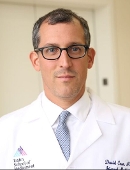When Should I Take Antibiotics?
“When antibiotics need to be taken is a question I get multiple times a day. Most people come in with a cold or a viral illness, cough, sinus congestion, and just generally feeling icky for however many days. In some cases, antibiotics are indicated. But they only treat bacterial infections. So, if it’s a viral illness, it’s mostly just treating the symptoms, usually with over-the-counter medications, getting rest, and fluids. I would say if it’s been a week or more and you’re still feeling sick, it’s never wrong to get checked out by your primary care physician. In general, viral illnesses can last up to two weeks. So if it’s been two weeks or more and you’re still feeling ill, I would definitely go in and see your doctor. I’m a primary care physician at Mount Sinai Doctors in Brooklyn Heights. We’re taking new patients any time, so feel free to make an appointment whenever is convenient for you.”
Camila Passias, MD is a board-certified primary care doctor at Mount Sinai Doctors Brooklyn Heights, seeing patients Tuesdays, Wednesdays, and Fridays. She has a particular interest in women’s health and is fluent in Spanish. Mount Sinai Doctors Brooklyn Heights is a two-floor practice with a walk-in urgent care center and more than 35 specialties. Located at 300 Cadman Plaza West, the practice is situated on the 17th and 18th floors.


